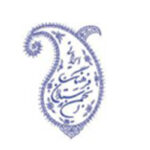“The Master knew the day and hour…”
Shoghi Effendi and Lady Blomfield wrote, in “The Passing of `Abdu’l-Bahá”:
We have now come to realize that the Master knew the day and hour when, His mission on earth being finished, He would return to the shelter of heaven. He was, however, careful that His family should not have any premonition of the coming sorrow. It seemed as though their eyes were veiled by Him, with His ever-loving consideration for His dear ones, that they should not see the significance of certain dreams and other signs of the culminating event. This they now realize was His thought for them, in order that their strength might be preserved to face the great ordeal when it should arrive, that they should not be devitalized by anguish of mind in its anticipation.
Out of the many signs of the approach of the hour when He could say of His work on earth, “It is finished,” the following two dreams seem remarkable. Less than eight weeks before His passing the Master related this to His family:
I seemed to be standing within a great Mosque . . . in the place of the Imam himself. I became aware that a large number of people were flocking into the Mosque; more and yet more crowded in, taking their places in rows behind me, until there was a vast multitude. As I stood I raised loudly the “Call to Prayer.” Suddenly the thought came to me to go forth from the Mosque.
When I found myself outside I said within myself, “For what reason came I forth, not having led the prayer? But it matters not; now that I have uttered the Call to Prayer, the vast multitude will of themselves chant the prayer . . .”
A few weeks after the preceding dream the Master came in from the solitary room in the garden, which He had occupied of late, and said, “I dreamed a dream and behold the Blessed Beauty … came and said unto me, ‘Destroy this room!’”
The family, who had been wishing that He would come and sleep in the house, not being happy that He should be alone at night, exclaimed, “Yes Master, we think your dream means that you should leave that room and come into the house.” When He heard this from us, He smiled meaningly as though not agreeing with our interpretation. Afterwards we understood that by the “room” was meant the temple of His body.
A month before His last hour, Doctor Sulayman Rafat Bey, a Turkish friend, who was a guest in the house, received a telegram telling him of the sudden death of his brother. `Abdu’l-Bahá speaking words of comfort to him, whispered, “Sorrow not, for he is only transferred from this plane to a higher one; I too shall soon be transferred, for my days are numbered.” Then patting him gently on the shoulder, He looked him in the face and said, “And it will be in the days that are shortly to come.”
In the same week He revealed a Tablet to America, in which is the following prayer:
Yá Bahá’u’l-Abhá! (O Thou the Glory of Glories) I have renounced the world and the people thereof, and am heart-broken and sorely afflicted because of the unfaithful. In the cage of this world, I flutter even as a frightened bird, and yearn every day to take my flight unto Thy Kingdom.
Yá Bahá’u’l-Abhá! Make me to drink of the cup of sacrifice and set me free. Relieve me from these woes and trials, from these afflictions and troubles. Thou art He that aideth, that succoureth, that protecteth, that stretcheth forth the hand of help.
On the last Friday morning of His stay on earth (November 25th) He said to His daughters, “The wedding of Khusraw must take place today. If you are too much occupied, I myself will make the necessary preparations, for it must take place this day.” . . .
`Abdu’l-Bahá attended the noonday prayer at the Mosque. When He came out He found the poor waiting for the alms, which it was His custom to give every Friday. This day, as usual, He stood, in spite of very great fatigue, whilst He gave a coin to every one with His own hands.
After lunch He dictated some Tablets, His last ones, to Ruhi Effendi. When He had rested He walked in the garden. He seemed to be in a deep reverie.
His good and faithful servant, Isma’il Áqá, relates the following:
Some time, about twenty days before my Master passed away I was near the garden when I heard Him summon an old believer saying, “Come with me that we may admire together the beauty of the garden. Behold, what the spirit of devotion is able to achieve! This flourishing place was, a few years ago, but a heap of stones, and now it is verdant with foliage and flowers. My desire is that after I am gone the loved ones may all arise to serve the Divine Cause and, please God, so it shall be. Ere long men will arise who shall bring life to the world.”
A few days after this He said, “I am so fatigued! The hour is come when I must leave everything and take my flight. I am too weary to walk.” Then He said, “It was during the closing days of the Blessed Beauty, when I was engaged in gathering together His papers, which were strewn over the sofa in His writing chamber at Bahji that He turned to me and said, ‘It is of no use to gather them, I must leave them and flee away.’ I also have finished my work, I can do nothing more, therefore must I leave it and take my departure.”
Three days before His ascension whilst seated in the garden, He called me and said, “I am sick with fatigue. Bring two of your oranges for me that I may eat them for your sake.” This I did, and He having eaten them turned to me, saying “Have you any of your sweet lemons?” He bade me fetch a few . . . Whilst I was plucking them, He came over to the tree, saying, “Nay, but I must gather them with my own hands.” Having eaten of the fruit He turned to me and asked “Do you desire anything more?” Then with a pathetic gesture of His hands, He touchingly, emphatically and deliberately said, “Now it is finished, it is finished!”
These significant words penetrated my very soul. I felt each time He uttered them as if a knife were struck into my heart. I understood His meaning but never dreamed His end was so nigh.
– Hasan M. Balyuzi, ‘Abdu’l-Bahá: The Centre of the Covenant of Bahá’u’lláh, pp. 457-460.
Category: Features, Stories, Story page, Uncategorized








